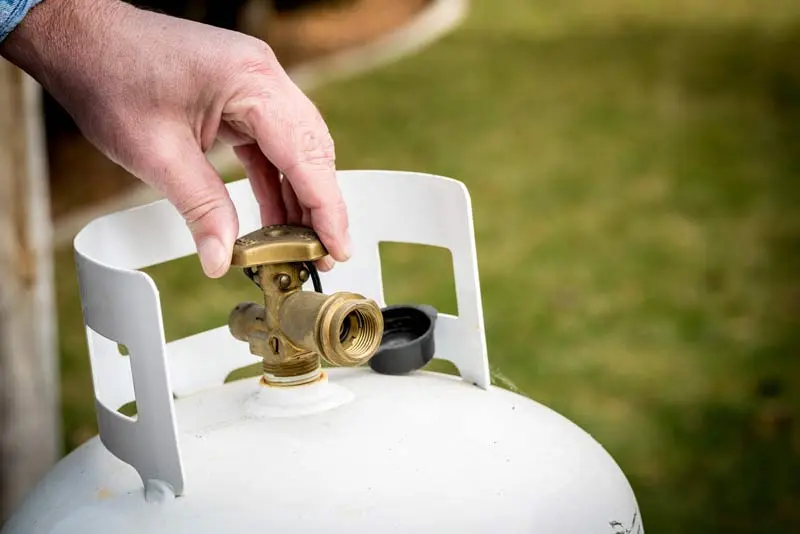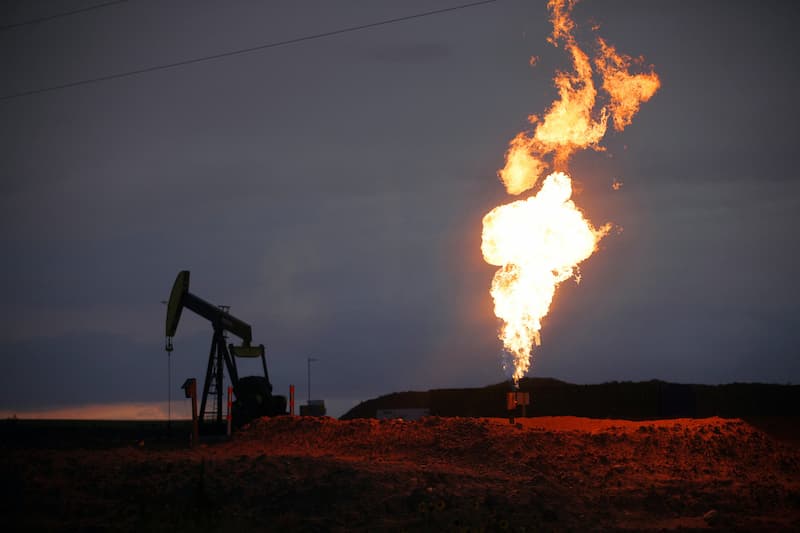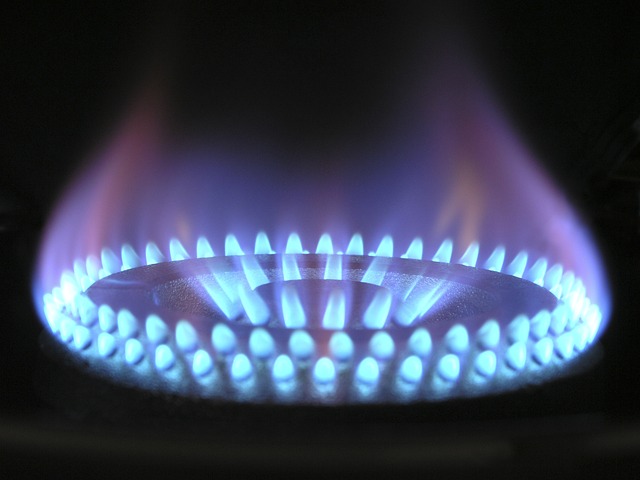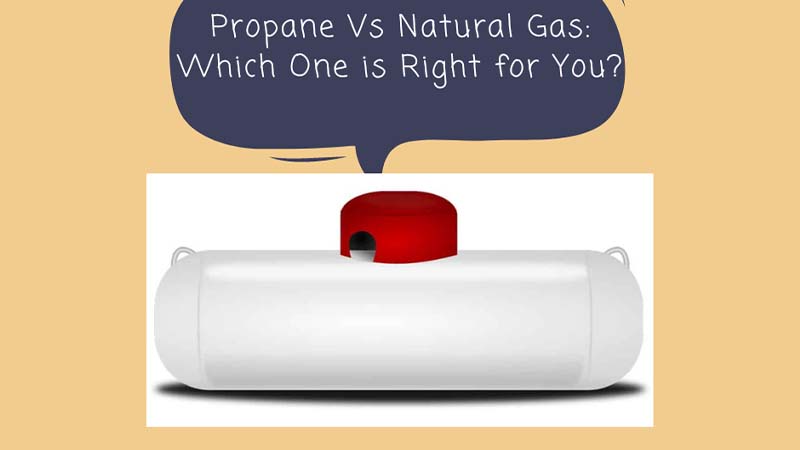How to choose when comparing propane vs natural gas? We will discuss energy-efficiency, cost, eco-friendliness, safety, and transportation in this article, continue reading.
Propane Vs Natural Gas: Natural gas is found below the earth’s surface and contains a mixture of various gases. On the other hand, after separating from natural gas during processing, propane is kept as a liquid in gas cylinders and tanks.
The additional variations are listed below.
What is Propane?
Propane is an odorless, colorless, non-toxic gas that is also referred to as liquefied petroleum gas (LPG). Propane is a component of natural gas and is produced through natural gas processing. Utilizing distillation, it is separated from the mixture.

What is Natural Gas?
An underground fuel source known as natural gas is colorless, odorless, and non-renewable. Methane, butane, and propane are among the mixture of gases that make it up. Methane, however, accounts for roughly 70–90% of natural gas.

Differences Between Propane and Natural Gas
Although there are many similarities between the two gases (such as both are clean-burning, colourless, and odourless), there are a lot of differences between propane and natural gas.
Energy Efficiency
The amount of energy we can produce using the same amount of fuel should always be considered when comparing different fuels. BTUs, which stand for British Thermal Units and are used to measure thermal energy, will be used in this comparison.
1030 BTUs are produced by using one cubic foot of natural gas. Propane usage results in 2516 BTUs per cubic foot. This means that if we use the same amount of both, propane will provide 2.5 times the energy.
Cost
After discussing energy efficiency, we can only discuss cost. The good news is that comparing propane and natural gas prices is incredibly simple. Price for propane must first be converted from gallons to cubic meters or feet (natural gas is typically measured in this manner) if it is given in gallons. In order to calculate the price of natural gas, we must first complete this step. We will be able to purchase the same amount of energy for the calculated prices in this way. Of course, this only works if we only care about the cost-to-energy ratio and disregard other elements like eco-friendliness.
Eco-friendliness
Natural gas and propane both burn cleanly, but propane burns cleaner and is more environmentally friendly. It is regarded as green fuel as a result.
Accidental leaks of propane into the atmosphere won’t harm anything. However, this is very dissimilar to natural gas, which contains the greenhouse gas methane.
Household Use and Transportation
Both natural gas and propane are frequently used in homes for cooking and heating. The primary distinction between propane and natural gas for household use is the way they are delivered.
Gas pipelines are used to transport natural gas to residences. This means that once gas pipelines are attached to a home, gas is accessible around-the-clock.
Contrarily, propane is typically kept in liquid form in propane tanks. Even locations without access to gas pipelines can receive these tanks thanks to their universal portability. The disadvantage is that propane tanks need to be refilled, and if for some reason refills are not possible (for instance, due to a significant storm), the home may be left without heat.
Safety
Both fuels should be handled with caution because they are very flammable. Leaks can be hard to find and fix, though, because of the infrastructure (and red tape) that come with natural gas lines. This is so that utility companies and the public utility commission can agree on how to pay for repairs or upgrades before acting.
Accidents also occur in unattended lines.
For instance, a Pacific Gas and Electric (PG&E) natural gas line exploded in San Bruno, California, in 2010., killing eight people. The gas line was found to be defective after an investigation, and PG&E was previously unaware of the line’s damage.
Although it is much less likely, propane tanks can also explode. Additionally, the effect is lessened because propane tanks aren’t connected by widespread gas lines.
Furthermore, even though some companies that provide natural gas add an odor like sulfur to make leaks easier to spot, natural gas leaks can be harder to find because the fuel is odorless in its natural state.
Despite how infrequent they may be, accidents can be very serious, so propane is thought to be a safer heating fuel.

Which Gas is Right for You?
Propane
Propane is frequently the fuel of choice to run your home appliances more effectively because it offers more BTUs for your money. It’s also usually better for cooking, especially if you use an outdoor barbecue, because high-heat grilling is more affordable.
Additionally, propane is seen as an “off-the-grid” heating solution. In other words, propane is portable and will still function if other systems in your home break down or if you need to move.
Natural Gas
On the other hand, using natural gas is a hands-off solution. Natural gas will always be available to your home, so you won’t ever need to schedule a delivery. Furthermore, since natural gas doesn’t have any fuel stored in tanks, you’ll never pay for more than you use. You pay as you go.
It makes sense to stick with natural gas if your infrastructure is already in place.
Whichever fits into your lifestyle and current setup the best will ultimately prevail. Do you have access to both fuels, how much infrastructure would you need to put in place to obtain either fuel, and what are your main plans for using your fuel?
Other Considerations
Is propane, then, always the best option for your home because of its superior burning capacity? No, there are a number of other factors that should be taken into account as with any energy decision. For example:
- Unlike natural gas, which is automatically delivered to your home, propane can also be monitored and refilled by your propane provider. As a result, you’ll regularly receive assistance from a professional in addressing your fuel needs.
- When used to power a gas grill, propane’s portability can actually be an advantage because it gives you more flexibility in where you can set up a barbecue in your backyard.
- Additionally, if other utilities fail, you can still be independent off the grid by using propane for a variety of home appliances, such as stoves and clothes dryers.
An expensive infrastructure upgrade or the purchase of a new furnace, stove, grill, and other appliances may be necessary when switching from one fuel source to another. Even if natural gas ends up being less expensive for your house, the investment may not pay off for several years.
Natural Gas Vs Propane: Conclusion
The similarities and differences between propane and natural gas are numerous. Both fossil fuels burn cleanly, without any smell or color.
Natural gas is not a green fuel, whereas propane is, and is thought to be more energy-efficient. Gas pipelines are used to deliver natural gas to residences. In propane tanks, propane is delivered. The last point is that natural gas is lighter than propane but heavier than air. This increases the danger of propane leaks.
Read about Central Air Vs Forced Air



